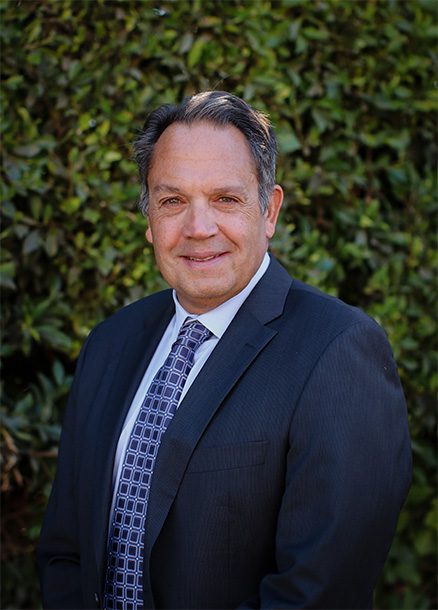Elder Law
As we age, we are faced with an array of complicated and uncomfortable questions about the challenges that accompany getting older. You or your loved ones can get ahead of these difficulties by planning for your future with an experienced elder law attorney. With the help of a skilled lawyer, you can get started on planning for retirement, set up a long-term care compliant estate plan, position yourself to qualify for Medi-Cal, set up a crisis management plan, and do whatever needed to guarantee your needs are met as you enjoy your golden years.
If you’re still wondering whether or not you should retain an experienced elder law attorney, we highly recommend you consider the following statistics:
- The average cost for nursing home care in California averages between $6,000 and $10,000 a month. For some, the cost is even higher.
- Two out of three families exhaust their life savings within one or two years after their family member enters a nursing home.
- One out of every two women, and one out of four men, will need nursing home care at some point in their lives.
Elder Care Attorney Services
Contact Botti & Morison to determine the best legal options for you or your loved one. Our attorneys have over 90 years of combined experience helping thousands of individuals and families set up customized estate plans to address their long-term care needs.
In addition, Chris Botti is a member of the National Academy of Elder Law Attorneys (NAELA) and Elder Counsel. Attorneys who are members of NAELA have exhibited experience and extensive training working with the legal problems of older Americans.
We Have Estate Planning Offices Throughout Southern and Central California
Botti & Morison Estate Planning Attorneys has offices in Ventura, Westlake Village, Santa Barbara, Valencia, Bakersfield, and San Luis Obispo. Call today at (877) 585-1885 to set up your first consultation free of charge.
Information Center
Long-Term Care Estate Planning Explained
Most are familiar with estate planning, which is where a person sorts out their affairs in the event they pass on or are too incapacitated to make decisions. Long-term care estate planning is similar, but instead focuses on taking a proactive approach to your future care when you’re too elderly to be independent. It’s essentially a customized estate plan to ensure you receive assisted living care or are placed in a fit nursing home when needed without draining your family’s life savings.
In order to properly plan for your future, the first step is to have a plan set up for incapacity. You may think incapacity will never happen to you, but the reality is life is unpredictable and the effects of aging can come at you fast. This can be shown in a report by the Center for Disease Control and Prevention (CDC), which revealed that 19.5% of adults over the age of 65 had difficulty performing at least one of the six domains of functioning—seeing, hearing mobility, communication, cognition, and self-care. Thankfully, you can set up proper documentation to ensure all financial and medical decisions are made without the need of judicial intervention.
Your next move after that is to have a well-crafted, comprehensive long-term care compliant estate plan. That way you are in a legal position to avail yourself of certain government programs that address long-term care. Many are shocked by the cost of long-term care and nursing home stays. In fact, the primary cause of poverty among those 65 or older is failing to prepare for end-of-life care. The fact isn’t surprising as nursing homes in California average over $120,000 annually. For most, the average nursing home stay is approximately 2.3 years.
Is Medi-Cal and Medicare the Same Thing?
Although similar, Medicare and Long-Term Care Medi-Cal are two separate and distinct government programs. Medicare is a federal entitlement program that provides health and medical benefits to Americans aged 65 or older. Any person over the age of 65 who has made Social Security contributions is eligible for these benefits. The program is not based on financial need and permits anyone to use it as long as they meet the eligible requirements.
Medicare provides limited coverage when it comes to long-term care. The program only covers nursing home expenses after following a three-day stay in a hospital. Medicare will only pay up to 20 days of nursing home care for rehabilitation purposes if this requirement is met. It does not extend coverage for care in an assisted living facility or residential care home at all. After the 20th day has passed, there will be a co-pay of $185.50 per day (subject to annual cost of living adjustments) until day 100.
Long-Term Care Medi-Cal, on the other hand, is need-based, meaning the eligibility depends on the amount of income and resources you or your family has. In order to qualify, you must undergo a medical assessment and an asset assessment. The program will classify your property as either “exempt or “non-exempt” due to various reasons.
Under current regulations, exempt property will not count towards your eligibility no matter its value. However, non-exempt property does count towards your eligibility. Individuals that do not have less than $2,000 in non-exempt property (or $3,000 if it’s two spouses receiving benefits) will be considered ineligible or lose their Long-Term Care Medi-Cal eligibility.
Exempt assets include:
- Your home
- IRA and pensions
- Community Spouse Resource Allowance (CRSA)
- Household goods and personal effects
- Jewelry
- Vehicles
- Life insurance
- Burial plots or burial plans
- Certain annuities
- Business property
- After acquired property
Dramatic changes to the Long-Term Care Medi-Cal Program in California are on the horizon. Effective May 1, 2022, Long Term Care Medi-Cal will be expanded to all individuals 50 or older regardless of immigration status. Beginning July 1, 2022, California will begin phasing out the “asset assessment.” Beginning January 1, 2024, the asset assessment will be eliminated as “resources, including property or other assets, shall not be used to determine eligibility under the Medi-Cal program to the extent permitted by federal law.” Stay tuned for further updates concerning these new rules and regulations.
Asset Protection & Preservation
As you get older, it becomes more and more important to plan ahead so your assets are safe from creditor claims. There are various asset protection methods you can pursue to limit creditor’s access to valuable property while operating legally within California law. One way to accomplish this goal is to set up an asset protection trust.
An asset protection trust is set up with the specific purpose of protecting your valuable assets from creditor claims. This type of trust is irrevocable, meaning any transfer of assets into the trust will be permanent. The trustor would remain owner of all the assets and a trustee would manage them if the trustor is deceased or too incapacitated to make decisions.
Veteran’s Benefit Planning
Veterans are also eligible for long-term care through the Veterans Aid and Attendance benefits. These are benefits designed to provide additional monthly payments to the total amount of a monthly VA pension received by Veterans who qualify. You may be eligible for the benefit if you receive a VA pension and meet one of the following criteria listed below:
- You need assistance from at least one person to perform daily activities such as feeding, bathing, or dressing
- You are required to stay in bed or a large part of the day in bed due to illness
- You are a patient at a nursing home due to mental or physical abilities related to the disability
- Your eyesight is limited (you must have only 5/200 or less in both eyes even with glasses/contacts or have concentric contraction of the visual field to 5 degrees or less)
Additional Resources
Medi-Cal | Providers & Services
Visit the official website for the Medi-Cal to learn more about the government program. Access the site to look at a list of providers in your area, learn if you qualify as a Medi-Cal beneficiary, how to enroll in the program, and resources you may need.
VA Nursing Homes, Assisted Living & Home Health Care
Visit the official website for the U.S. Department of Veteran’s Affairs to learn how you can receive the benefits you’re entitled to. Access the site to see what your benefits cover, how to access these services, and where you can find additional information and support.
California Elder Law Attorneys | Long-Term Care Estate Planning Services in Ventura County, Los Angeles County and Central California
Nursing home costs and other types of elderly care have skyrocketed over the last ten years. It’s now more important than ever to ensure your existing estate planning documents are long-term care compliant. That way you can protect your estate, including your home, so you can leave a legacy for your family. Without an effective Long-Term Care Medi-Cal compliant estate plan, you and your family may be forced to pursue an expensive and time-consuming Probate Conservatorship instead.
Elder Law Attorneys in California
Our elder law attorneys have decades of experience helping individuals and families set up estate plans to address their long-term care needs. Call today at (877) 585-1885 to set up your first consultation free of charge.
Botti & Morison accepts clients throughout California and has offices in Ventura County, San Luis Obispo County, Los Angeles County, Kern County, and Santa Barbara County.






